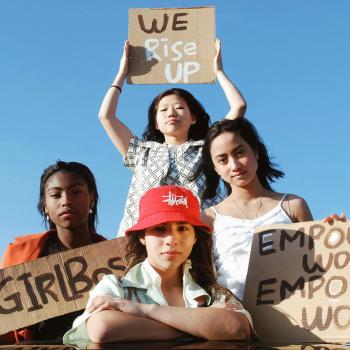Documenting the Past, Fostering the Future: Youth Voices in El Movimiento
By Lynn Schofield Clark
Documenting the Past, Fostering the Future (DPFF) is a curricular initiative that began in September 2023 with a grant from the National Endowment for the Humanities, Curricular Initiatives program. The grant was initially scheduled to cover the initiative for two academic years: 2023-2024 and 2024-2025, and to conclude in December 2025. The grant was eliminated by the Trump Administration as of April 2025. Fortunately, three organizations internal to the University of Denver are providing funding to enable the project to complete its goals: the Center for Community Engagement to Advance Scholarship and Learning (CCESL) (via the Arthur Vining Davis Foundation), the Interdisciplinary Research Institute for the Study of (In)Equality (IRISE), and the Latinx Center.
The initiative centered on cultivating young people as agents in and storytellers of the struggle for racial justice in Colorado and the Front Range region of the larger Rocky Mountain West. The university-wide humanities-centered curricular collaboration involved twelve faculty members who led courses and research projects that incorporated students into the work of partnering with community members in recovering and documenting the racial justice efforts of earlier youth populations in the region, while fostering an historically informed perspective for racial justice work in the present and future. Specifically, DPFF focused on recovering, and making available as digital oral and visual resources, the stories of several pivotal events and leaders in the Chicano/a movement that took place in the Denver, southern Colorado, and northern New Mexico regions. Students and faculty members have worked directly with three Latina Community Scholars who served as liaisons to Chicano/a artists, activists, and community leaders. These Community Scholars arranged panels and interviews with Chicano/a artists and community leaders so that students could learn directly from these leaders in settings of the community leaders’ choosing, fulfilling what community leaders viewed as an unmet need to convey the stories of their community for future generations. Students were able to form relationships with community members as they learned from them over the course of a quarter or a research project. Students also were able to work with the materials produced in this community-led initiative, following the directives of Chicano/a community leaders to enhance existing archives and to plan pedagogical interventions in a manner consistent with the wishes of the community members.
For its central pedagogical goal, DPFF aimed to engage students in immersive and experiential learning opportunities to improve competencies in the humanities. Students developed skills through the practice of 1) cultural interpretation and critical analysis of original documents, 2) cross-cultural collaboration, and 3) synthesis of primary and secondary sources into contextually specific, coherent, and community-engaged narratives. A secondary pedagogical goal involved introducing students to community-engaged research practices, and specifically to research practices developed in relation to Indigenous communities and their insights into learning and extending traditions of care across generations (Beltràn and Begun 2014; Beltràn, Alvarez, & Dunbar 2025). A tertiary goal aimed to strengthen relationships between the university and community organizations and local historians.
In this report, we review the way that the collective impact work of the Migration Cohort of the University of Denver’s Grand Challenges was further developed by members of the Documenting the Past, Fostering the Future initiative. We offer a brief history of migration in the area, as this provides an important backdrop for the community engaged research that served as the Cohort’s research and pedagogical focus in the 2024-2025 academic year. We then introduce the personnel involved in the year’s endeavors, as this group brought together faculty members, students, and community leaders - leaders with expertise and deep roots in local Chicano/a communities, cultures, and histories - who served as Community Scholars for the year. Twenty additional members of Chicano/a communities also have been involved in this endeavor in 2024-2025, providing oral histories or support for the gathering of these and other materials. We report on the ways that this initiative connected students, faculty, and community members in joint efforts to honor and enhance the experiences of those living in the community who identify with Chicano/a communities. Over the course of the 2024-2025 academic year, fifteen courses and a week-long immersive research opportunity offered collective impact experiences for 221 undergraduate students and 10 graduate students. We also introduce the community engaged signature work of five undergraduates and three graduate students. We then offer an overview of the curricular groundwork completed in the first year of the initiative (2023-2024) that provided the basis for the initiative’s 2024-2025 work. We conclude with plans for the 2025-2026 academic year.
